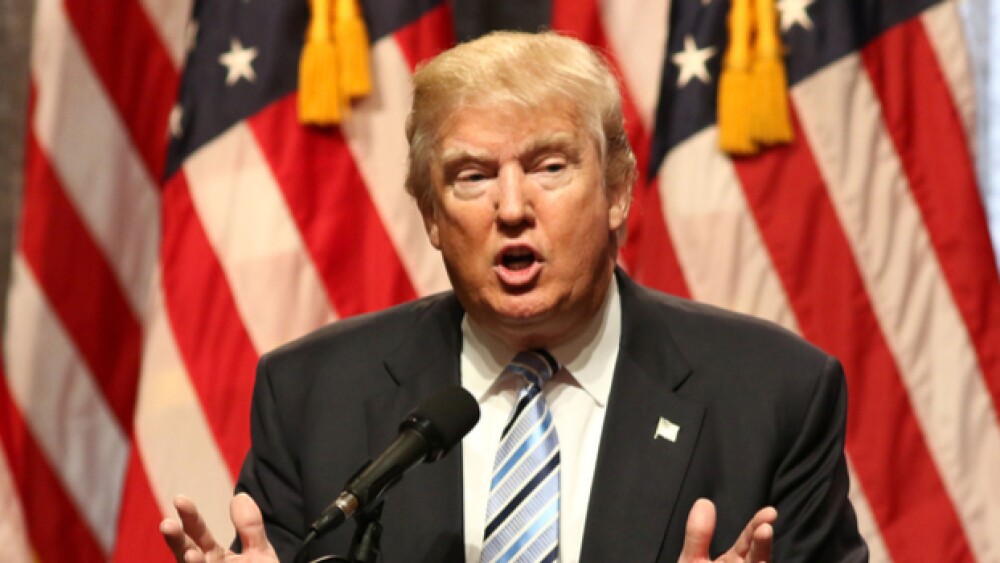To suggest that the pharma industry is a reluctant partner in President Donald Trump’s attempts to decrease drug prices is to overstate the fact. But now the industry appears to be pushing back, at least a little bit.
JStone / Shutterstock.com
To suggest that the pharma industry is a reluctant partner in President Donald Trump’s attempts to decrease drug prices is to overstate the fact. It’s probably more accurate to say that the pharma industry is acquiescing while the Trump Administration waves a gun in their face. But now the industry appears to be pushing back, at least a little bit.
In July, after a number of Trump attack-tweets over drug pricing, several biopharma companies made at least token pledges to not raise their U.S. drug prices this year. Both Roche and Sanofi did.
In July, after announcing it was raising the price of 40 prescription drugs, Pfizer then walked back the price increase. At the time, Trump tweeted, “Pfizer is rolling back price hikes, so American patients don’t pay more. We applaud Pfizer for this decision and hope other companies do the same. Great news for the American people.”
At the time, Pfizer issued a press release stating that it was putting off the price increase to “give the president an opportunity to work on his blueprint to strengthen the healthcare system and provide more access to patients.”
But in a conference call yesterday, Pfizer’s chief executive officer Ian Read said he thought the company would go back to “business as usual” for drug price increases in January. He said that the company had been working with Trump “on parts of the blueprint,” but the time may be up.
“Look, I don’t think our pricing situation has changed,” Read said. “I have at this moment in time no different view about how we will take price increases as we did last year.”
Drug companies typically raise prices in January and July. It was the July raise that drew Trump’s Twitter tirade and a public, although often meaningless, capitulation on the part of many drug companies. For example, Roche, Sanofi and Merck KGaA, all European-based companies, indicated they didn’t plan on raising their drug prices this year in the U.S. Novartis also agreed to delay drug prices. Merck (a different company than Germany’s Merck KGaA) indicated it planned to cut prices of some of its drugs, specifically citing hepatitis C drug Zepatier, which it planned to cut by 60 percent. It also included a list of other drugs whose price the company planned to cut by 10 percent.
None of the drugs Merck listed were blockbuster drugs or even significant revenue drivers. Zepatier brought in $131 million in the first quarter of 2018, down 65 percent from the same period in 2017, and recorded no U.S. sales after rebate payments to insurers.
Other drug industry executives are coming out now to question Trump’s blueprint. Read told CNBC Tuesday, “I don’t believe that the proposed rule in reference pricing to price-controlled markets as a way of setting prices in the U.S. is good for innovation, patients or our industrial base.”
Brent Saunders, chief executive officer of Allergan, told CNBC on Tuesday that he thought it was a “dangerous proposition” and a “slippery slope.”
Read also indicated he didn’t think that the Trump pricing model outlined in the blueprint was likely to be implemented by the end of this year.
CNBC writes, “Read said he hopes the administration will revise its plan to tie drug prices covered by Medicare Part B to an international average that’s much lower than what the U.S. currently pays. Medicare is the government insurer for the elderly and disabled, and Part B drugs are those administered in the hospital or doctor’s office, rather than being dispensed at a pharmacy.”
It’s possible that Trump, motivated by next week’s mid-term elections, will launch another Twitter attack directed at the pharmaceutical industry in retaliation, although he currently seems focused on other topics.





